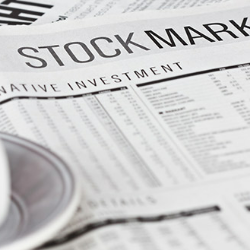Looks like Self Tests have been approved for use i
Post# of 22467

Quote:
Self-tests and Covid-19: HAS authorizes their deployment in France
As part of the screening for Covid-19, several tools are available in France. It is possible to perform PCR tests in the laboratory and antigenic tests in pharmacies. Saliva tests have also been deployed in schools. This Tuesday, March 16, a new device was authorized by the High Authority of Health (HAS): self-tests. According to the Director General of Health Jérôme Salomon, they will be on sale this week in France.
Since March 1, these self-tests are available in Austria. Each inhabitant can thus obtain five free kits per month in pharmacies. On Saturday March 6, in Germany, Lidl and Aldi stores also put on sale self-tests for Covid-19. In England, secondary school students can take self-tests from Monday March 8. This device has also been authorized in Portugal since March 13. But how does it work and how to get self-tests in France?
On Tuesday March 16, the Haute Autorité de Santé gave the green light for the deployment of self-tests in France. “The HAS validates the use of antigenic tests on a nasal sample in screening: rapid diagnostic tests (RDT), rapid diagnostic orientation tests (TROD) and self-tests”, she wrote on Twitter.
COVID-19: HAS GIVES THE GREEN LIGHT TO SELF-TESTS
The health authority said in a statement that the self-tests represented “screening tools complementary to the tests already used in France”. It also gave indications on its conditions of use: they are intended for asymptomatic people over 15 years of age.
HAS recommends the use of these tests “as part of a large-scale targeted iterative screening as an alternative to antigenic RDTs / TRODs on nasopharyngeal or nasal samples” as well as “within the framework of a use restricted to the private sphere (for example, before a meeting with relatives…) “, can we read in the press release.
What about l’efficacité des Autotests? “Are the clinical performance criteria used to validate the tests a clinical sensitivity greater than or equal to 80% and a clinical specificity greater than or equal to 99% in symptomatic subjects?“, specifies the HAS in this document.
Sunday March 14, the Director General of Health Jérôme Salomon announced on BFMTV that the self-tests would be available in France as soon as “this week”. He had specified that this device would be “fairly easy to access because the principle of the self-test is precisely that we can have it with the family”. They will thus be sold in pharmacies and perhaps in supermarkets. The reimbursement of these self-tests is currently under study.
“The real question is how do we then trigger the device to ‘test, alert, protect’ to have the follow-up of the person therefore his recording and on the other hand ensure that the side of the ‘Health Insurance, we have the contact tracing device. Because if we no longer warn your contacts, it is a real problem, just as we must also ensure that your isolation is well controlled and supported “, added the Director General of Health.
In countries that have authorized self-testing for Covid-19, home-use kits are sold in pharmacies or in some supermarkets. Like PCR and antigen tests, they are performed using a nasal swab. However, they are presented as less painful because the objective is to take a sample from the nasal vestibule and not from the nasopharynx.
After taking this sample, the swab is inserted into a tube containing a reagent. The results are available after about twenty minutes thanks to a reading strip. Some of these tests are associated with applications to identify positive cases.
What about the reliability of these self-tests? The question is divisive, because some of them would better detect Sars-CoV-2 in case of high viral load. A study published on the scientific pre-publication site medRxiv and carried out on 146 symptomatic people nevertheless indicates that the Covid-19 screening self-test developed by the Roche laboratory showed a sensitivity of 82.5%.
“Massive antigen screening is the most relevant tool in the face of the need for acceleration. Better a test that performs at 80% with a rapid, simple result and ten times less expensive than a PCR, than a reliable result at 100 % in two days “, explained to JDD Xavier Guérin, EMEA vice-president of Innova Medical Group, whose self-test was authorized in Great Britain.
https://marketresearchtelecast.com/self-tests...WbR8_Ery-U
 (0)
(0) (0)
(0)